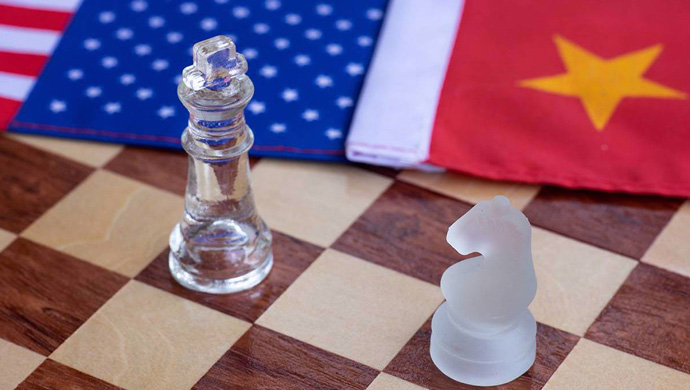May 04, 2021
Biden's address to the Congress welcomes competition with China.
Tom Watkins, President and CEO of the Economic Council of Palm Beach County, FL
Apr 29, 2021
After a 40 plus year run, the U.S.-China relationship has come to the proverbial fork in the road. Which way will America go?
Ma Shikun, Senior Journalist, the People’s Daily
Apr 20, 2021
Comments about Xinjiang should be based on reality, but unfortunately in the West they are not. Anti-China voices, led by the United States, are getting a level of attention that is far out of proportion to their credibility. The truth is easily established for fair-minded people.
He Wenping, Senior Research Fellow, Charhar Institute and West Asia and Africa Studies Institute of the China Academy of Social Sciences
Apr 17, 2021
China has its own reasons for strategic cooperation with Iran, and undermining the United States is not one of them. It is true, however, that Iran wants the U.S. to lift all sanctions, and the U.S. has signaled that it may be ready to concede.
Yu Sui, Professor, China Center for Contemporary World Studies
Apr 06, 2021
Both countries know that confrontation only leads to a dead end in the long run. A mix of cooperation and competition remains the norm that has worked for both countries in the past. But it’s difficult to strike a balance, and competition is likely to overwhelm cooperation, as it always has.

Yao Yunzhu, Retired Major General, Chinese People’s Liberation Army
Apr 06, 2021
There’s a long list of worthwhile possibilities in the military and security fields, and it’s of utmost importance that the two countries engage with one another. The result of failure could be catastrophic.
Sajjad Ashraf, Former Adjunct Professor, National University of Singapore
Mar 25, 2021
The Quad’s loose confederation of democratic, U.S.-backed states in Asia and Australia was meant to stand-up to China’s economic might, but it may have presented China with ample motivation to fight tooth-and-nail for recognition.
Doug Bandow, Senior Fellow, Cato Institute
Mar 25, 2021
When two highly motivated powers compete for influence, its defenders prepare for the worst - full blown military conflict. The cost of deadly conflict must weigh heavily on the minds of national leaders before they take their next steps.
Wu Zhenglong, Senior Research Fellow, China Foundation for International Studies
Mar 24, 2021
The Quad Security Dialogue will not get far, mainly because three of its members don’t want to compromise relations with China. The dialogue will likely focus on form over content and symbolism over substance. It will do little to shape Indo-Pacific geopolitics.
Richard Javad Heydarian, Professorial Chairholder in Geopolitics, Polytechnic University of the Philippines
Mar 22, 2021
The Quad, a revitalized clique of democratic nations surrounding China, has been criticized by Chinese as a thinly-veiled ploy to contain its growth. It could prove to be a formidable obstacle, if the U.S. maneuvers correctly.
Back to Top

- China-US Focus builds trust and understanding between the U.S. and China through open dialogue among thought leaders.
- Our Offerings
- Topics
- Videos
- Podcasts
- Columnists
- Research Reports
- Focus Digest
- Stay Connected
-
Thanks for signing up!
- Get the latest stories from China-US Focus weekly.